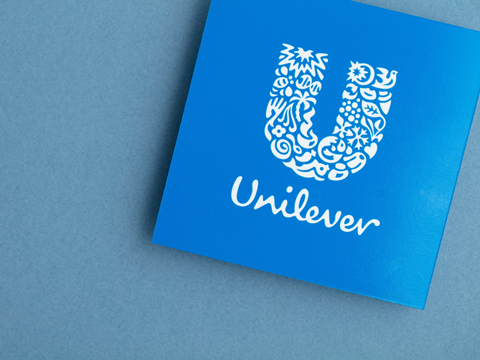
Unilever has revised its goal to halve virgin plastic consumption by 2025, shifting the target to one-third by 2026. This is feared to result in a further 100,000 tons of fresh plastic being produced every year and has sparked backlash – yet others have defended the move as a realistic decision.
Under former CEO Alan Jope, Unilever pledged to invest €1 billion into environmental projects to benefit “the health of the planet” between 2020 and 2030. This would encompass a ‘deforestation-free’ supply chain by 2023; the utilization of satellite monitoring, geolocation tracking, and other digital technologies to improve traceability and transparency; and a target to achieve net-zero emissions from all its products by 2039.
Any brands that could not meet Unilever’s sustainability targets were to be sold off. In response to concerns about the company’s bottom line, Jope stated that “principles are only principles if they cost you something.”
However, The Guardian reports that, since current CEO Hein Schumacher took over the company in July 2023, the company’s shares have fallen by 8%. Arguing that he “need[s] to drive performance in the company”, Schumacher indicated in an interview with Bloomberg that, as of right now, the sustainability landscape is insufficient for the company to meet its previous targets.
“On plastics, you need governments, you need retailers, you need partners in the petrochemical industry,” he said. “You need recycling systems that match.”
The change is one of several ESG commitments scaled back by Unilever. Others include its pledge to pay all direct suppliers a living wage by 2030, which has now been reduced to a living wage promise accounting for half its goods and services spending by 2026; and the complete removal of two targets for 2025 – spending €2 billion with diverse businesses worldwide, and ensuring that 5% of its workforce constitutes disabled employees.
Schumacher described ESG as “cyclical”, stating that ongoing international conflicts are currently taking precedence over climate targets. However, Unilever hasn’t changed its stance on carbon reduction, and its CEO believes that the company could still “make a difference” in its targets for the “climate, plastics, nature, and livelihoods”.
Criticism of the decision has been widespread. Meyrick Consulting CEO Mike Meyrick warns it “underscores a broader, distressing trend among corporations to deprioritize green initiatives in favour of immediate financial performance”; and Sarah Whale, managing director at Profit Impact, encourages consumers to “avoid spending money with large businesses as much as you possibly can” to undermine what is alleged to be a financially-motivated business move.
“Hein Schumacher and his board are well aware of the ruinous impact of their plastic pollution,” adds Nina Schrank, head of Plastics at Greenpeace UK. “The tsunami of plastic they produce each year meant their existing targets were already not fit for purpose.
“We needed much more. And so rather than doubling down, they’re quietly dressing up their backpedalling and low ambition as worthy pragmatism.”
In a differing opinion, Alison Taylor, clinical professor at NYU Stern School of Business, asserts that “more sober, restrained, realistic commitments on fewer issues that the company can actually influence is good news”; that “corporate responsibility as PR is over, and we should appreciate this [as] progress”.
Similarly, Ken Pucker from Tufts University suggests that Unilever “remains a top quartile sustainability exemplar” and describes its decision to “not force fit purpose” as “wise”. While its Scope 1 and 2 emissions have reportedly decreased by 68% since 2015, keeping the company on track for net zero by 2030, its Scope 3 emissions are thought to remain the same as 2020 – despite its target to reduce them by at least 30% before 2030.
He also says that Unilever is “far behind on its pledge to cut its plastic virgin use… likely because virgin plastic remains cheaper than recycled plastic”. Still, he notes Unilever’s involvement in negotiations for a Global Plastics Treaty, advocating for the inclusion of Extended Producer Responsibility.
Posting from INC-4 in Ottawa, Schumacher emphasizes Unilever’s involvement in the Business Coalition for a Global Plastics Treaty and encourages the creation of harmonized global rules to build upon existing voluntary action.
“Unilever is doubling down on plastic as one of the four priorities in our renewed sustainability framework,” he says. “We have seen firsthand that it takes all stakeholders to make real progress.
“And while we have made strong voluntary progress (we’ve reduced our virgin plastic use by 18% and increased our recycled plastic use to 22% of our global packaging portfolio), we need binding rules to go much faster – and level the playing field for all companies.”
For a full run-down of the Treaty’s progress thus far and the packaging industry’s reactions, take a look at our guide to the International Negotiating Committee’s conversations from day one.
We recently examined P&G’s own efforts to lower the environmental footprints of its own operations, its consumers, and the sectors it contributes to. This includes the development of purification technology for recycled polypropylene, redesigning its packaging for various products, and more.
If you liked this story, you might also enjoy:
The Brief: How viable is biorecycling for plastics?
Report: How the top brands are progressing on packaging sustainability
The Brief: Using ocean-bound plastic in packaging – how, why and should we?














1 Reader's comment